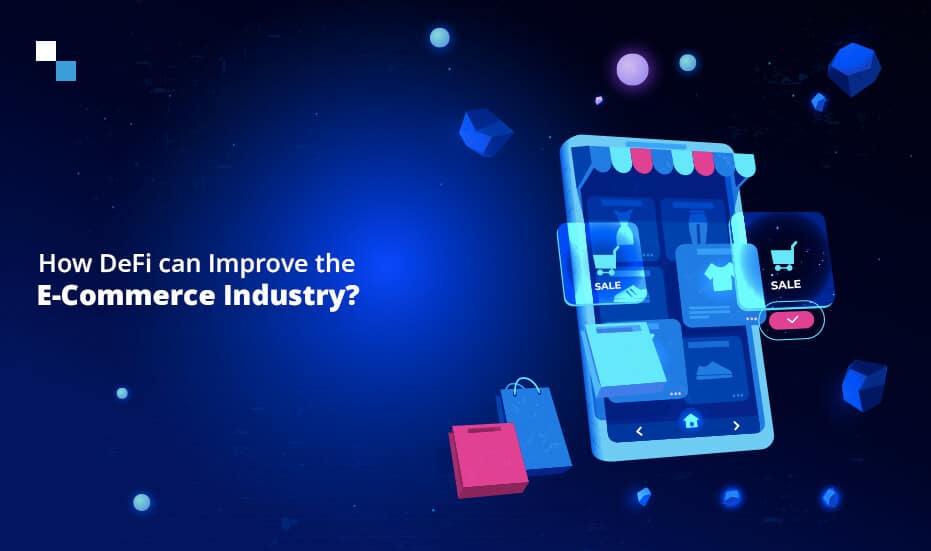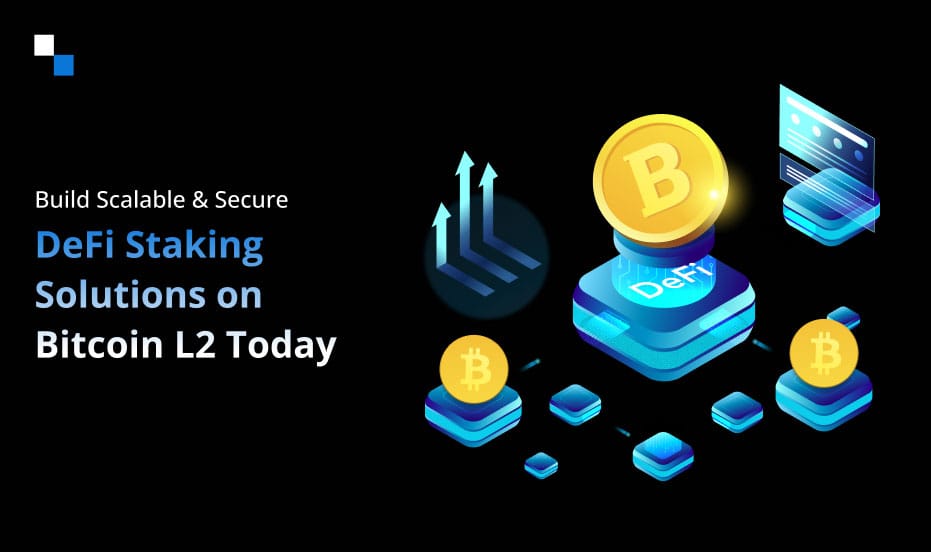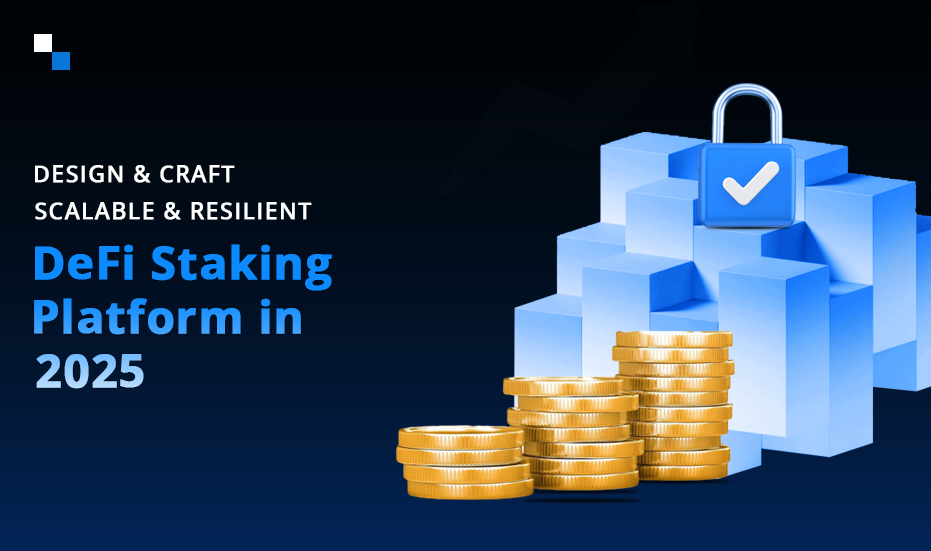People prefer e-commerce because it allows them to have a more comfortable buying experience. Furthermore, e-commerce enables entrepreneurs to leverage a platform that simplifies customer engagement. It boosts the brand’s global recognition while also providing other noteworthy advantages.
On the other hand, DeFi development offers better prospects for entrepreneurs by lending money and providing additional security measures for their assets. As a result, the collaboration of both of these technologies yields incredible commercial benefits. It also addresses fraud transactions, as DeFi uses smart contracts to automate transactions fully.
An amalgamation of both of these approaches offers a robust ecosystem that can lead to high-level customer experiences and ultimately increase the user base on the e-commerce platform.
Defi Solutions Development for E-commerce
E-commerce DeFi solutions might be a godsend to the industry. Global access, offers and coupons, and improved brand promotions benefit from decentralized financing in e-commerce. For every company, DeFi-based protocols for e-commerce are a lucrative proposition.
DeFi solutions for e-commerce businesses provide customers with a sophisticated digital purchasing experience. Faster delivery times, real-time supply chain tracking, a more extensive product base, the use of interactive technological tools, a higher profit margin, and no third-party involvement are critical features of DeFi solutions for e-commerce platforms.
Advantages of Defi and e-commerce Integration
We’ve already gone over some of the outstanding advantages of DeFi-based solutions. Let’s take a look at some of the additional advantages of DeFi solutions development for the e-commerce industry:
• Better Sales Proposition to offer
For online retail marketplaces, blockchain design allows for effective omnichannel selling without sacrificing the functionality of older systems. In actuality, there are a variety of ways to achieve transformation.
• Transaction Costs are Reasonably Low
Blockchain technology takes its initial step by eliminating intermediaries from practically any phase in which it is used. This provision has a considerable benefit in that it lowers transaction costs significantly. A retailer can then pass the savings on to customers.
• Transactions are both quick and secure
Again, the fewer intermediaries involved, the fewer stops a transaction must make before being completed. In blockchains, those transactions take place in a single network. The network’s capacity is now the single criteria that determine transaction speed.
• Enhanced Data Security for Business
A blockchain system means that the data is not stored on a single central server. It can also be distributed across a network of nodes or machines, making it very immutable. Hacking is nearly impossible because actions are only carried out with all parties’ consent.
• Transactional History
Because it systematically stores information in a series of blocks linked like a chain with a unique key created for each entry, we call it blockchain technology. Changing information necessitates network consensus. It is practically hard to change the information on a blockchain network without gaining network consensus. It assures that not only is your data safe, but you also have access to the history of your transactions since the beginning.
• Tracking Supplies
Supply Chain Tracking is a service that allows you to keep track of your supply lines. Error is a natural part of life. Then, there is an intermediary at any point in the supply chain management system. It exposes your transaction to underhanded methods and unethical practices designed to save money or harm your business. However, interfering with a blockchain integration scheme becomes difficult.
• Payment Methods That Work Better
After Bitcoin became famous, blockchain was added as a technology with many use cases. Several blockchain payment solutions are available that can significantly lower transaction costs. Furthermore, transactions are made more frictionless with crypto wallets that have been designed with blockchain integration.
• Assistance with After-Sales Services
Loyalty programs, transaction records monitoring, development ideas, and feedback via effective systems are just a few of the many benefits offered by DeFi solutions for ecommerce.
As the online sales industry accepts and benefits from distributed ledger technology, it will expand how sellers may work with their customers and support their bottom lines.
Develop your own DeFi Solution in E-commerce
Schedule Free DemoUse cases of DeFi Solutions in e-commerce
• Supply Chain Management
The supply chain’s dependability is critical to each e-commerce site’s success. A consistent supply chain procedure aids the store operator in determining what stock is in the pipeline and when new stock will arrive and ensure that suppliers deliver the exact goods requested. E-commerce companies can guarantee that producers adhere to blockchain-based rules and not substitute goods without notice. As a result, traceability enabled by blockchain adds transparency to the process.
• Identity Management and Data Security
As more people utilize online platforms to conduct transactions, the digital footprints they leave behind are unprecedented. Customers’ personal or bank data is exposed to various web databases prone to security vulnerabilities every time they enter it for payment purposes on an e-commerce website. By securing individual identities against fraud and misuse, blockchain-based identification can assist merchants in developing robust authentication methods and encrypted digital identities for greater identity security.
• Ownership of a Virtual Property
Typically, the business owner spends a lot of money to develop high-quality photos, product videos, reviews, and other content for an e-commerce website. DeFi solutions for ecommerce, on the other hand, are the proprietor. Using blockchain, retailers can own all digital properties, such as digital storefronts, product photos/videos, and reviews. This ownership is recorded on the blockchain and is entirely transparent.
• Inventory Management
The sector of inventory management can tremendously benefit from the use of blockchain. By incorporating blockchain into inventory management, businesses may, for example, locate and reduce inventory in the same way that traditional shopping carts can. When predefined thresholds are exceeded, they can also purchase replacement supplies. It means that the online store will never run out of stock while ensuring that there will be no extra inventory.
• Loyalty Program Management
Thanks to blockchain, clients will be able to take advantage of tailored promotions and loyalty incentive schemes. Blockchain simplifies personalized offers and loyalty incentive schemes. On the blockchain, a solution securely preserves purchasing history and preferences. With blockchain-based loyalty program management, delivering a discount or granting incentive points to customers when they meet certain purchasing thresholds is faster and more secure because all transactions are recorded on the chain.
• Warranty Administration and Management
Consumers and dealers are often irritated by the loss of paper receipts and the inability to demonstrate warranty coverage. Suppliers, merchants, and clients will all have access to data, allowing easy access and confirmation of warranty information.
Conclusion:
DeFi brings unparalleled opportunities to any ecosystem, and e-commerce can be a great use case where Defi Solutions for ecommerce will empower the user community, the ecommerce platform, and the industry.
If you want to integrate DeFi as a core competence for your ecommerce platform, or if you want to develop a blockchain-based e-commerce platform, Antier Solutions can help. We offer mission-driven solutions to build world-class blockchain-based e-commerce platforms.
Connect with our subject matter experts to share your needs for DeFi solutions





